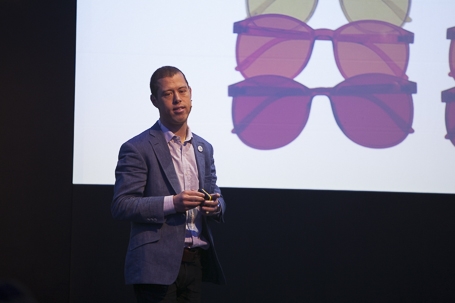NEWS18 March 2015
All MRS websites use cookies to help us improve our services. Any data collected is anonymised. If you continue using this site without accepting cookies you may experience some performance issues. Read about our cookies here.
NEWS18 March 2015
UK — The current research paradigm is not suited to entrepreneurialism, so market researchers must “take a walk on the wild side”, and create a manifesto for change, according to speakers at the Market Research Society (MRS) Annual Conference: Impact 2015.

Tom Woodnutt, founder of Feeling Mutual, outlined his belief that researchers must adapt in order to ensure they prove their value in a world where there is so much data and a reluctance to invest in market research. “As entrepreneurs become bigger business and as big business becomes more entrepreneurial, there are new imperatives for researchers,” he said.
“There are a number of problems with traditional research,” Woodnutt went on. “It can be very expensive and slow, which is incompatible with the agility that brands need. It’s stuck in a broadcast model and is too often narrowly defined by the client agenda: what clients think they want to know.”
To combat this, Woodnutt gave three principles that he believes researchers should embrace. The first is to shift roles from being a messenger to a value negotiator. That is, balancing what brands want with what people want, and ensuring that people want to help by making the relationship more collaborative. The second principle is to move “from science to experience”, by earning the right to engage with consumers by making the research process more fun and using “soft engagement, not hard incentives”.
The third principle that researchers should embrace, says Woodnutt, is to move from being a collector of data to a curator of meaning. “We need to take more responsibility for the insights we create”, he says. One way of doing this is to be more canny with how research budget is spent to deliver the most valuable insight.
Earlier in the session, James Eder (pictured), founder of The Beans Group, provided context that allowed researchers to frame their own manifesto for change. He urged attendees to be entrepreneurial by imagining a scenario in which they couldn’t fail: “Who would you be? Where would you go? What would you do?”
Nick Gadsby of Lawes Gadsby Semiotics had provided a safety net for entrepreneurial thinking in the form of his belief that innovation needn’t be about reinventing the wheel. He outlined different types of newness: incremental newness (e.g. evolving iterations of Windows OS); oppositional newness (new products at odds with previous lines, e.g. Coca Cola Life); and archaic newness (the current trend for nostalgia). “We’re always looking for familiarity in the new,” Gadsby said. “No thing comes from nothing.”
3 Comments
JClarvis
9 years ago
I left market research about 5 years ago, and the discussion of "how to change market research" was still going on then. The industry really just needs to try things and then do it, rather than endlessly talking about the need to change.
Like Reply Report
NickD
9 years ago
Good point, JClarvis - there has certainly been a lot of industry navel-gazing in recent years, and good to know it's not just a recent development!
Like Reply Report
Andy Crysell
9 years ago
I do agree with Tom's points but, in broader terms, it really would be a nice thing if the research industry could spend a bit more time talking up its good points and a bit less time in self-harm mode.There's always room, and a need, for change and innovation, but the 'everything is broken' tone in so much industry commentary is both tedious and pretty defeatist sounding. I don't hear the same degree of negativity in fields such as PR, creative, digital etc and the need for change is as constant in those areas, too. The negative mood in much industry commentary also flies in the face of the many exciting agencies who exhibit a real appetite to push things forwards. Much of the time it comes across as if we're trying to talk ourselves into doom, gloom and abject failure. Perhaps it would be better if we just cheered up a bit...
Like Reply Report